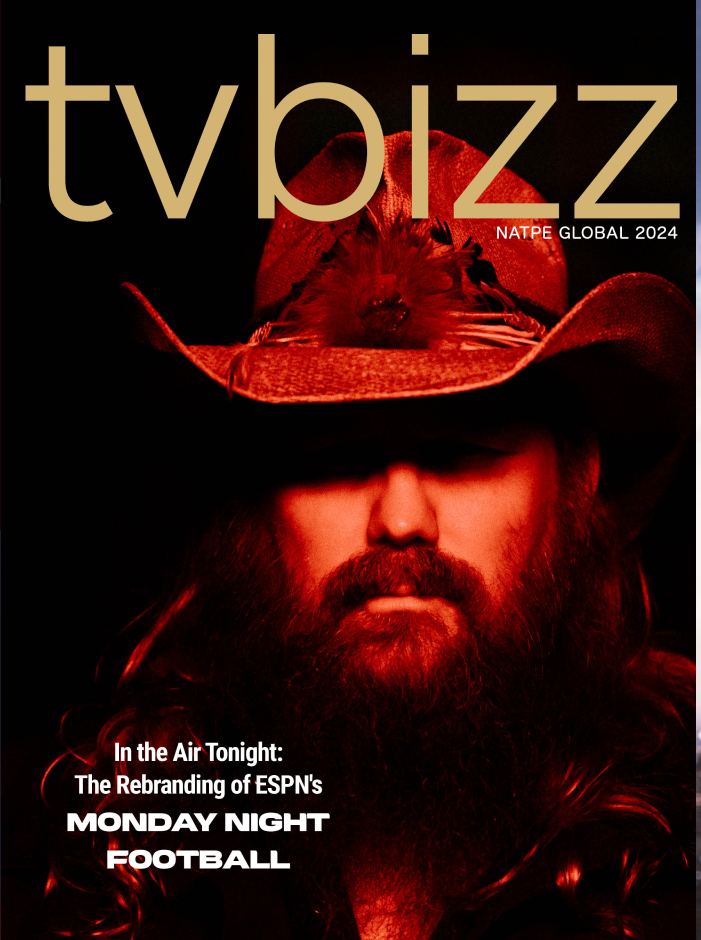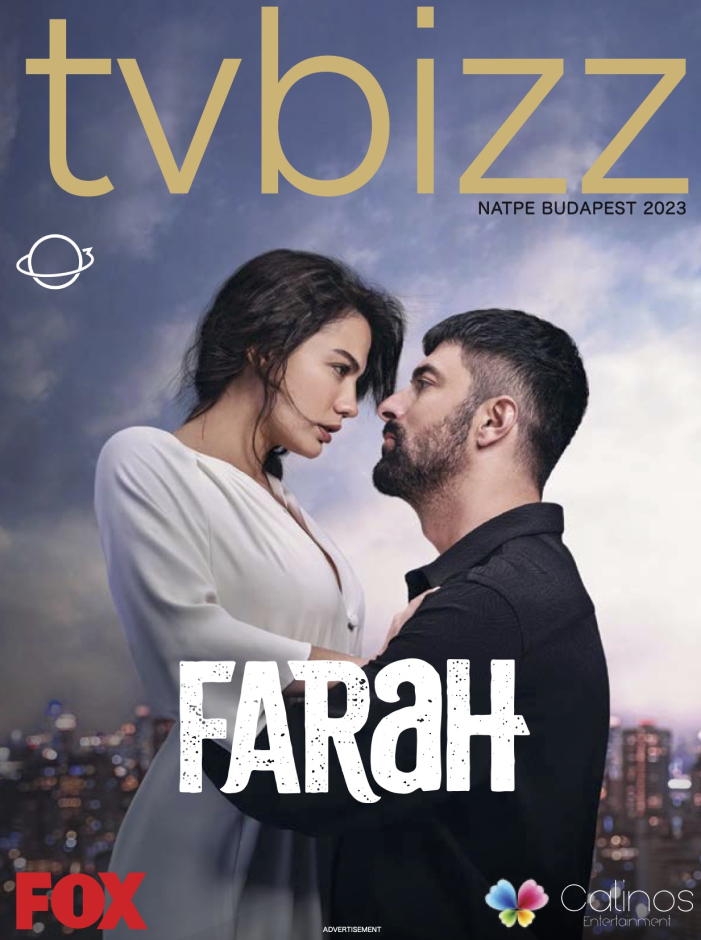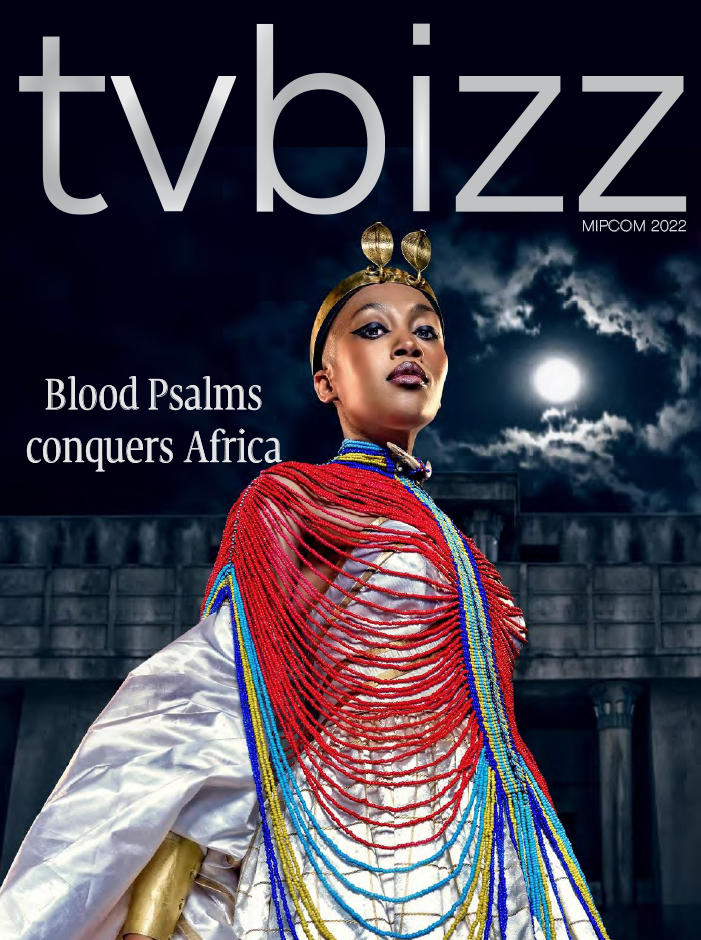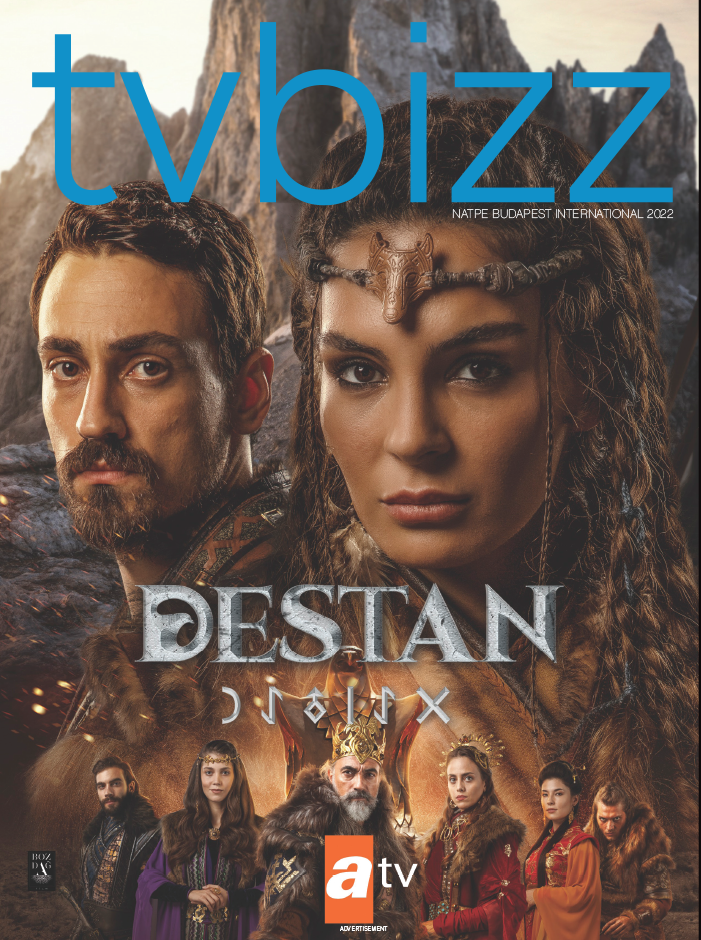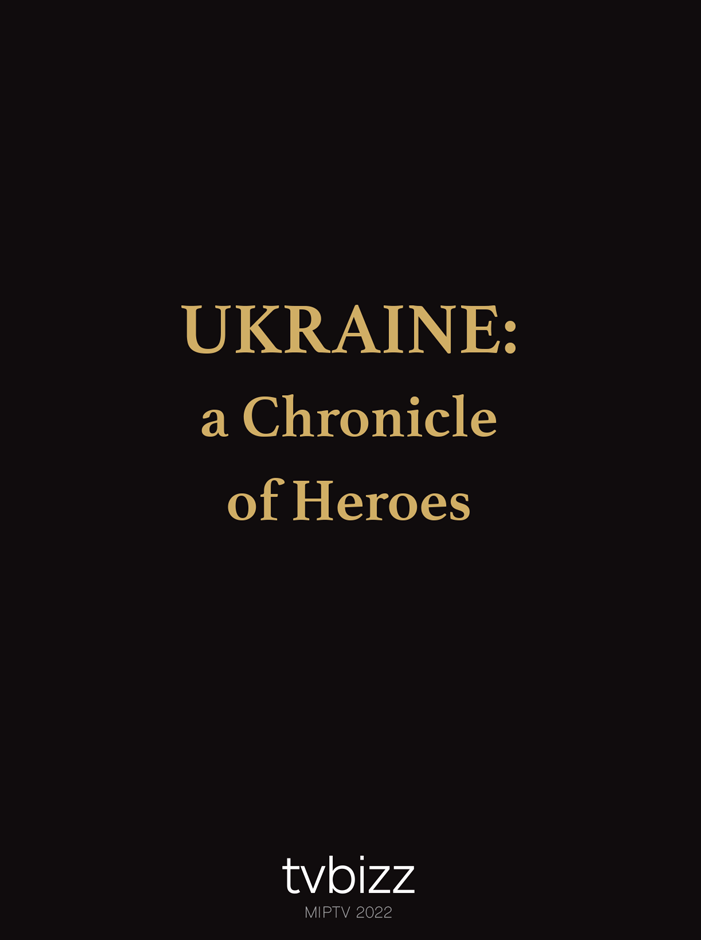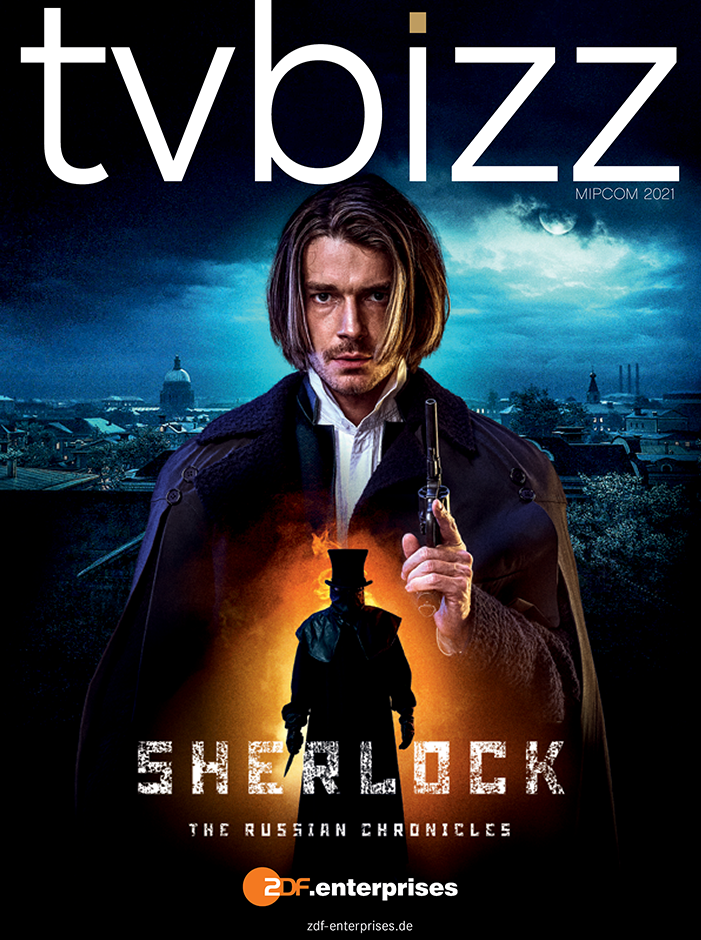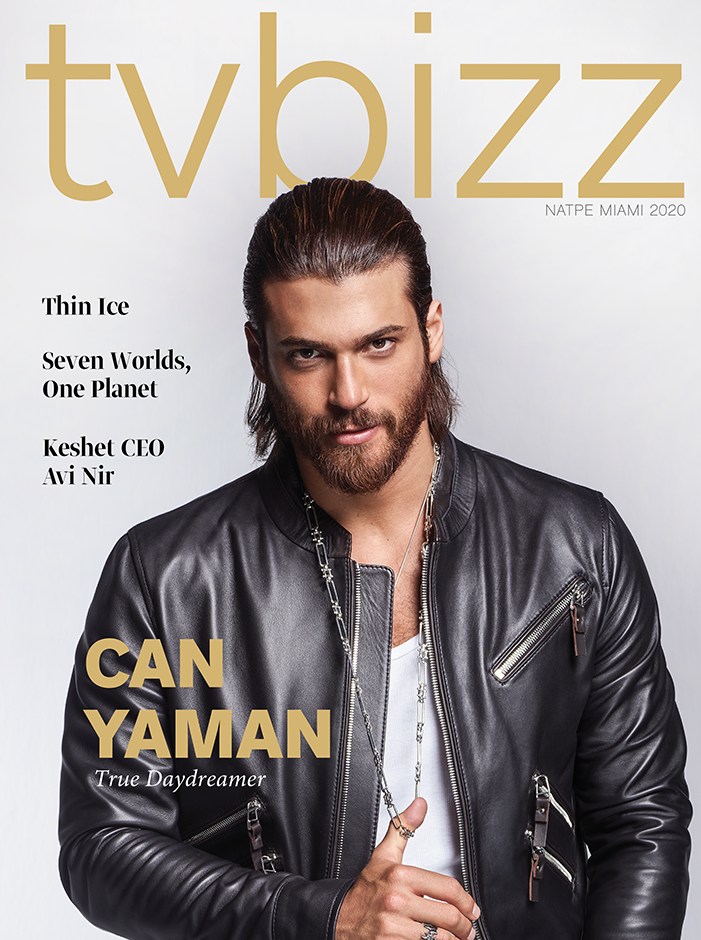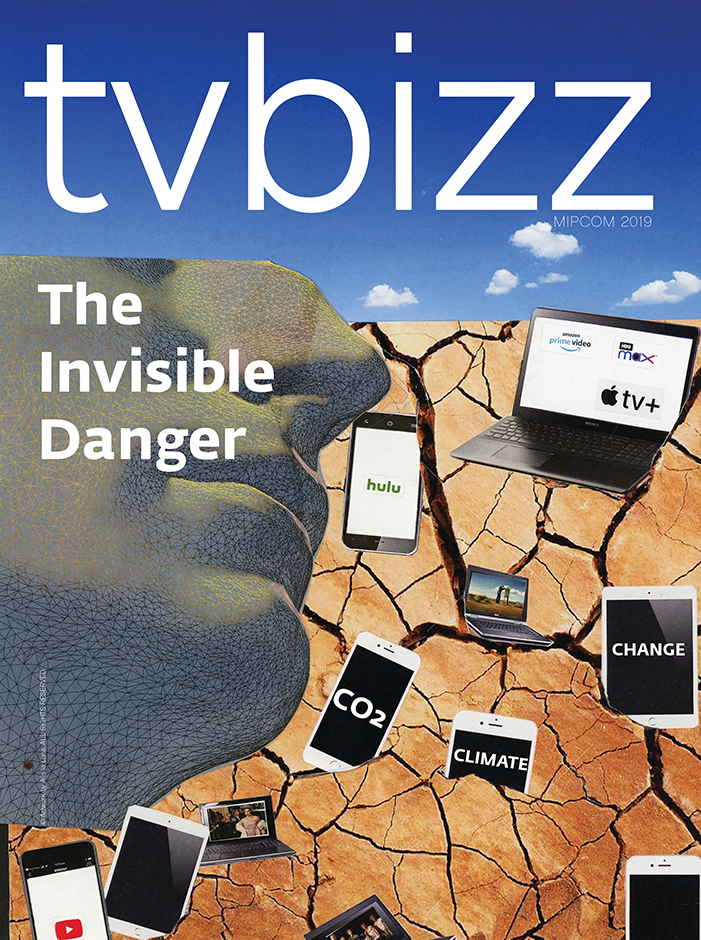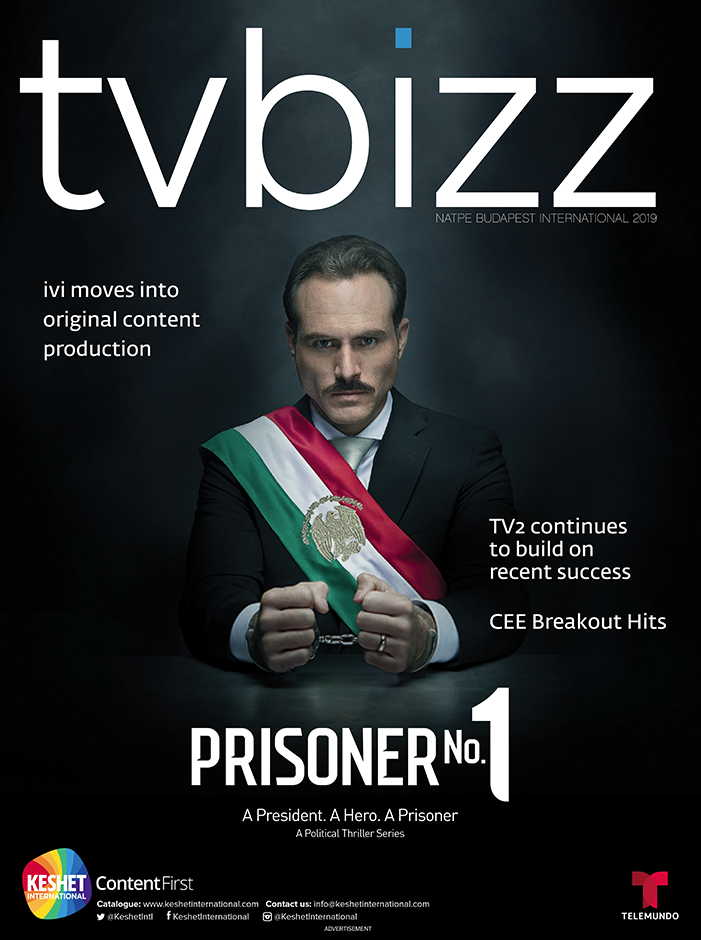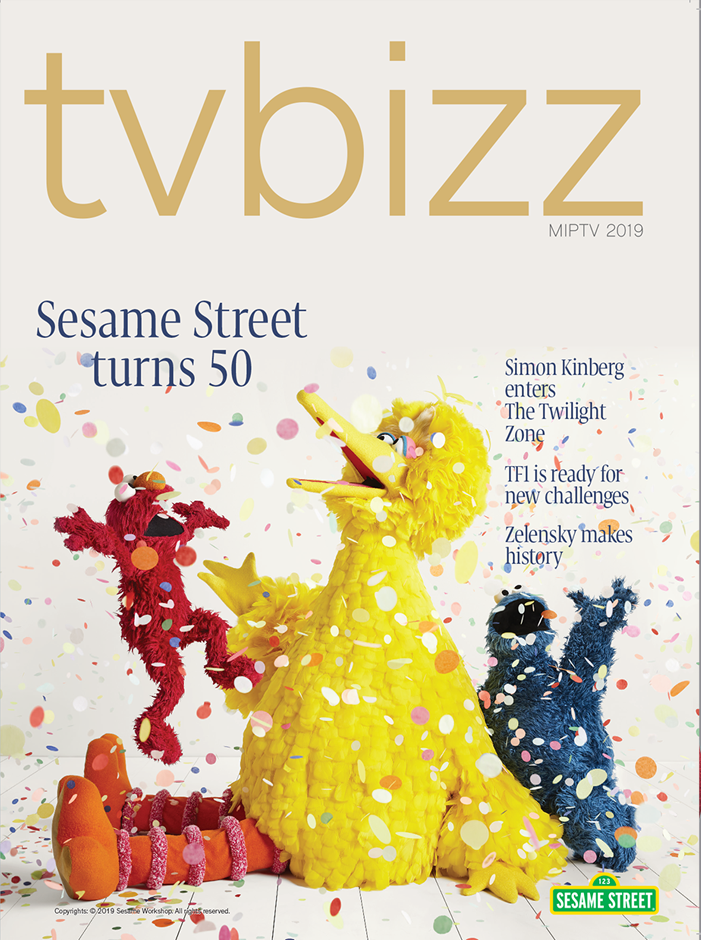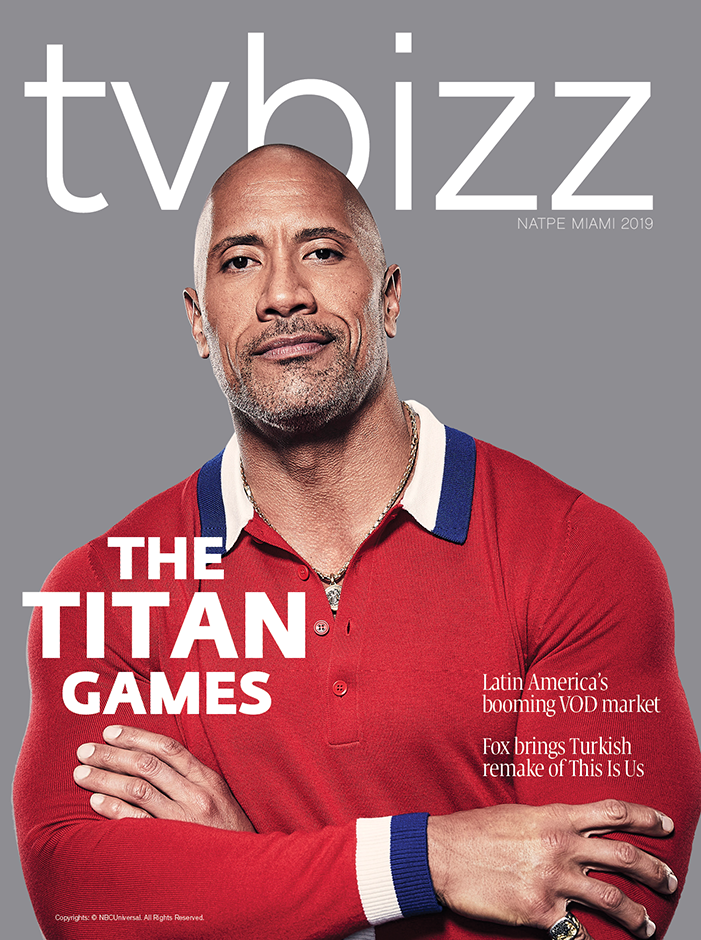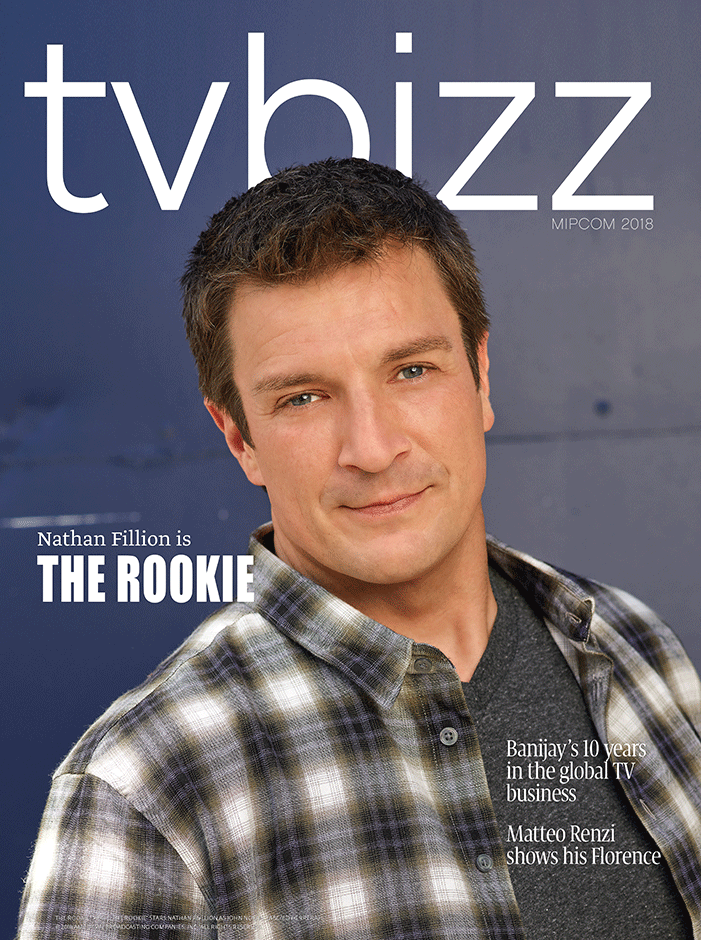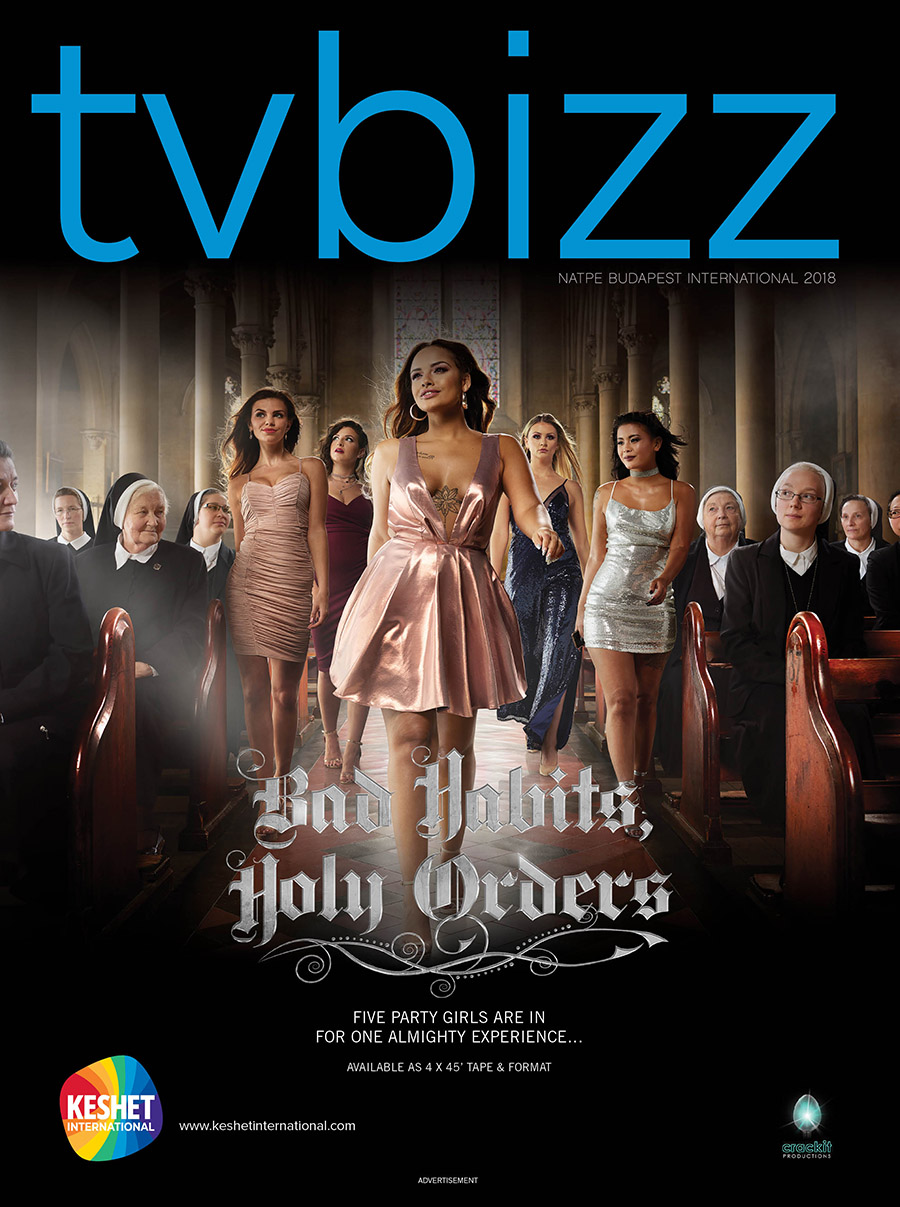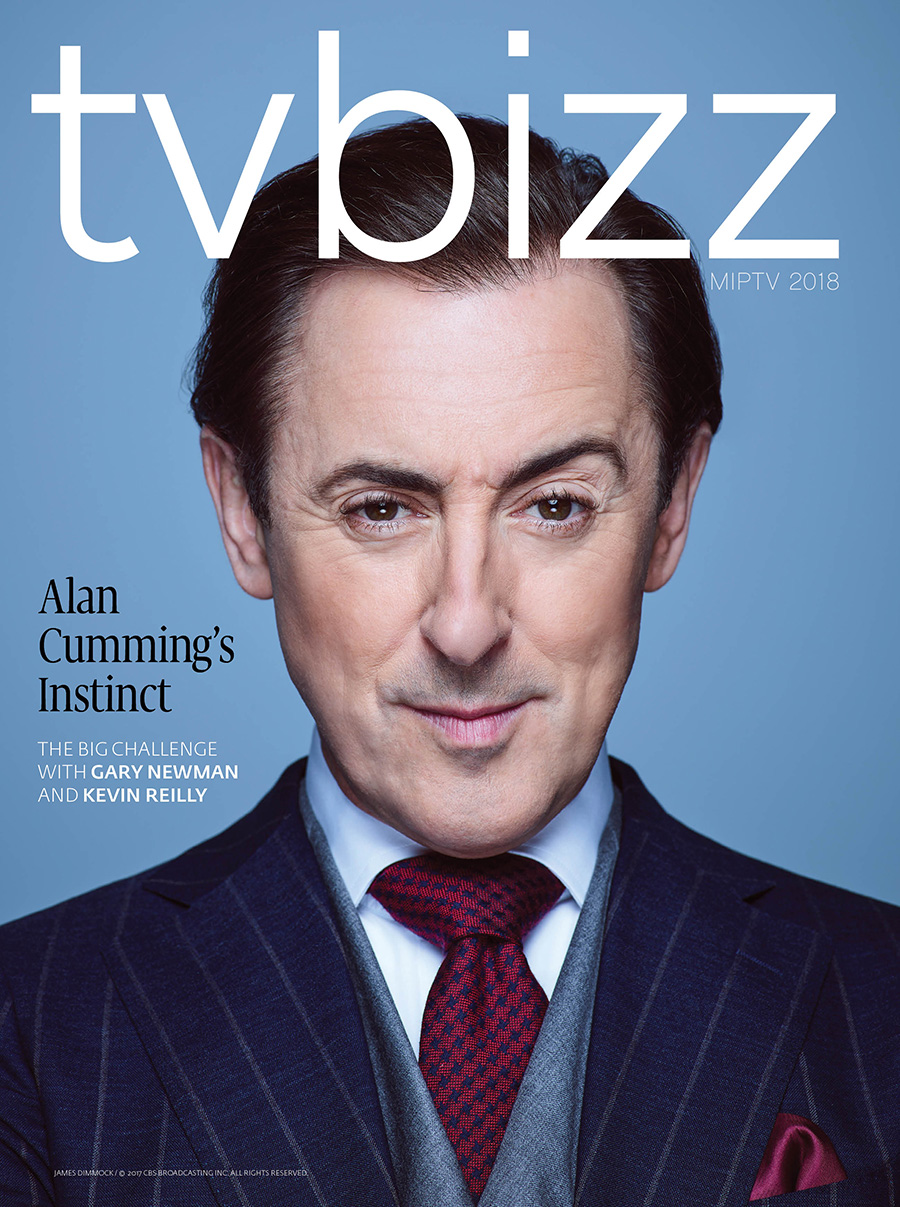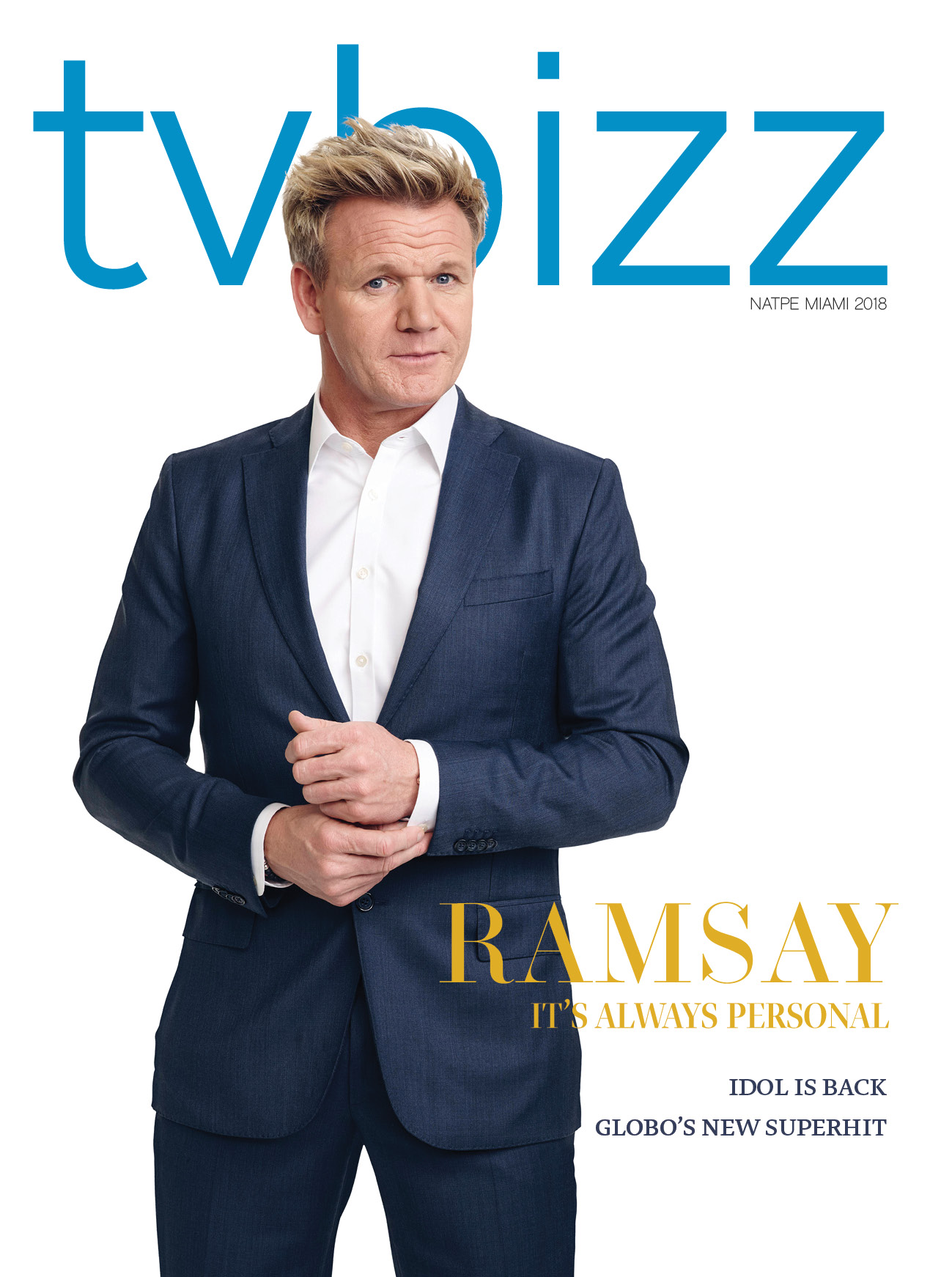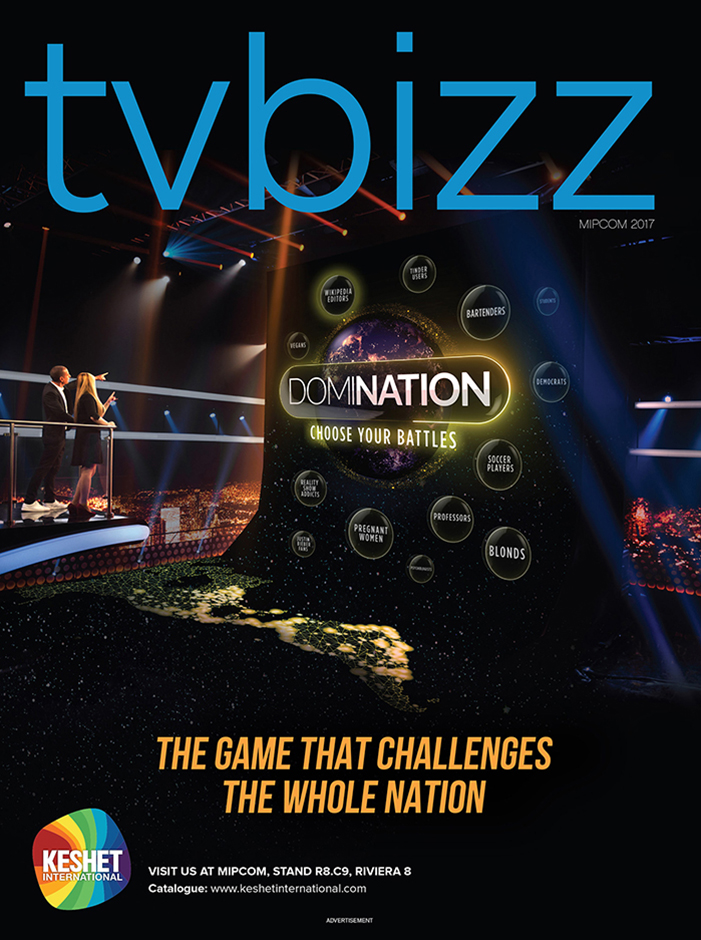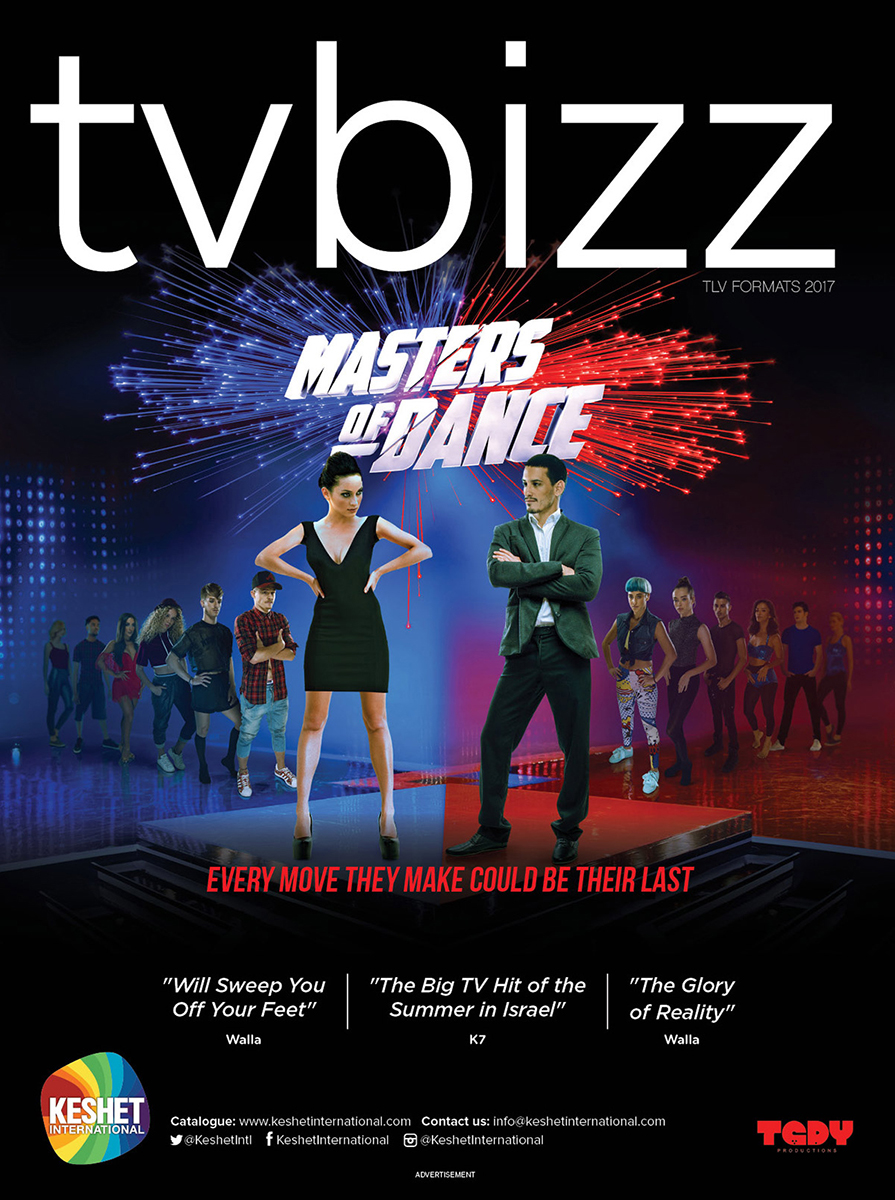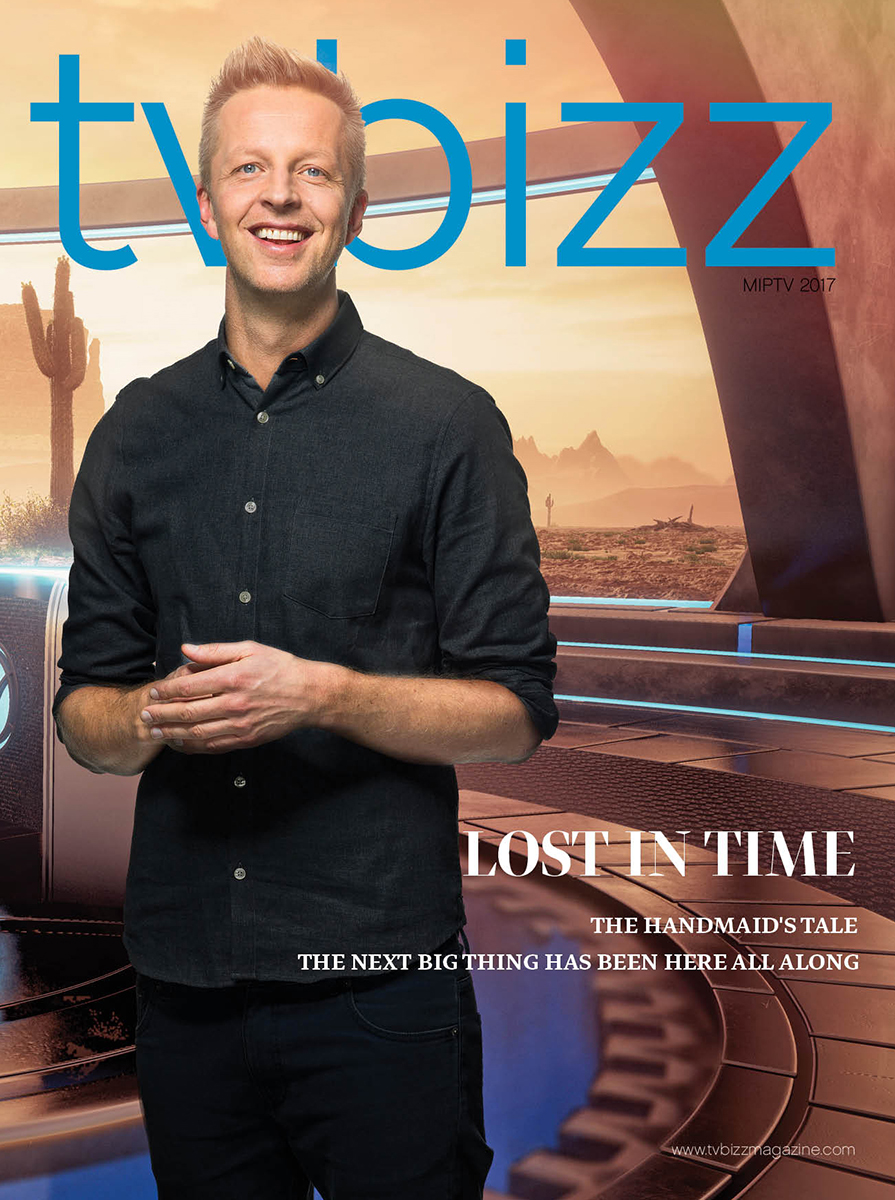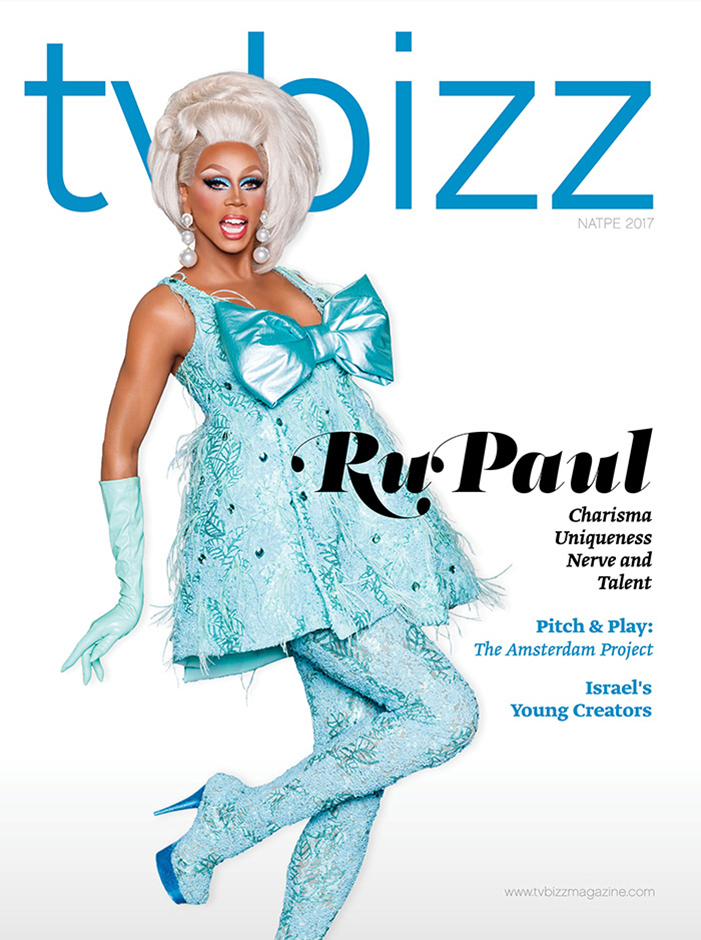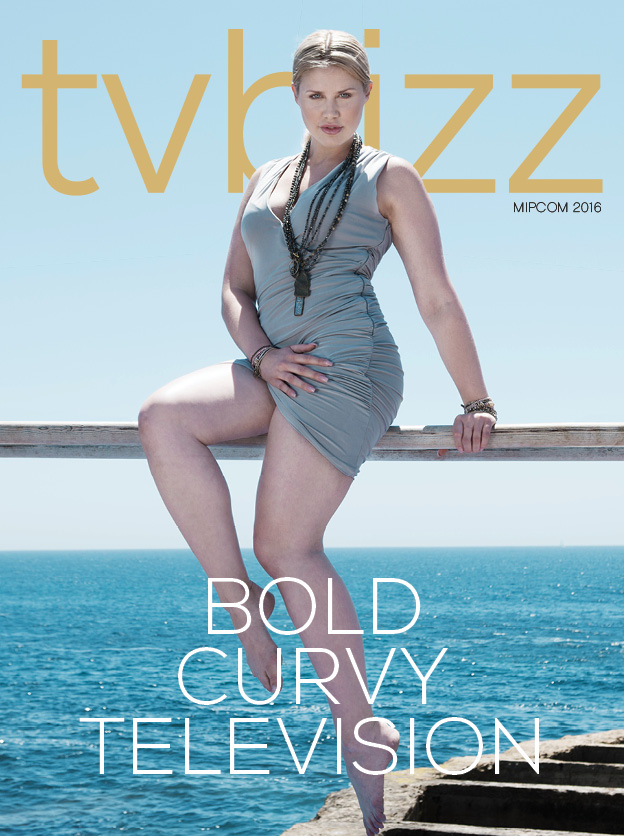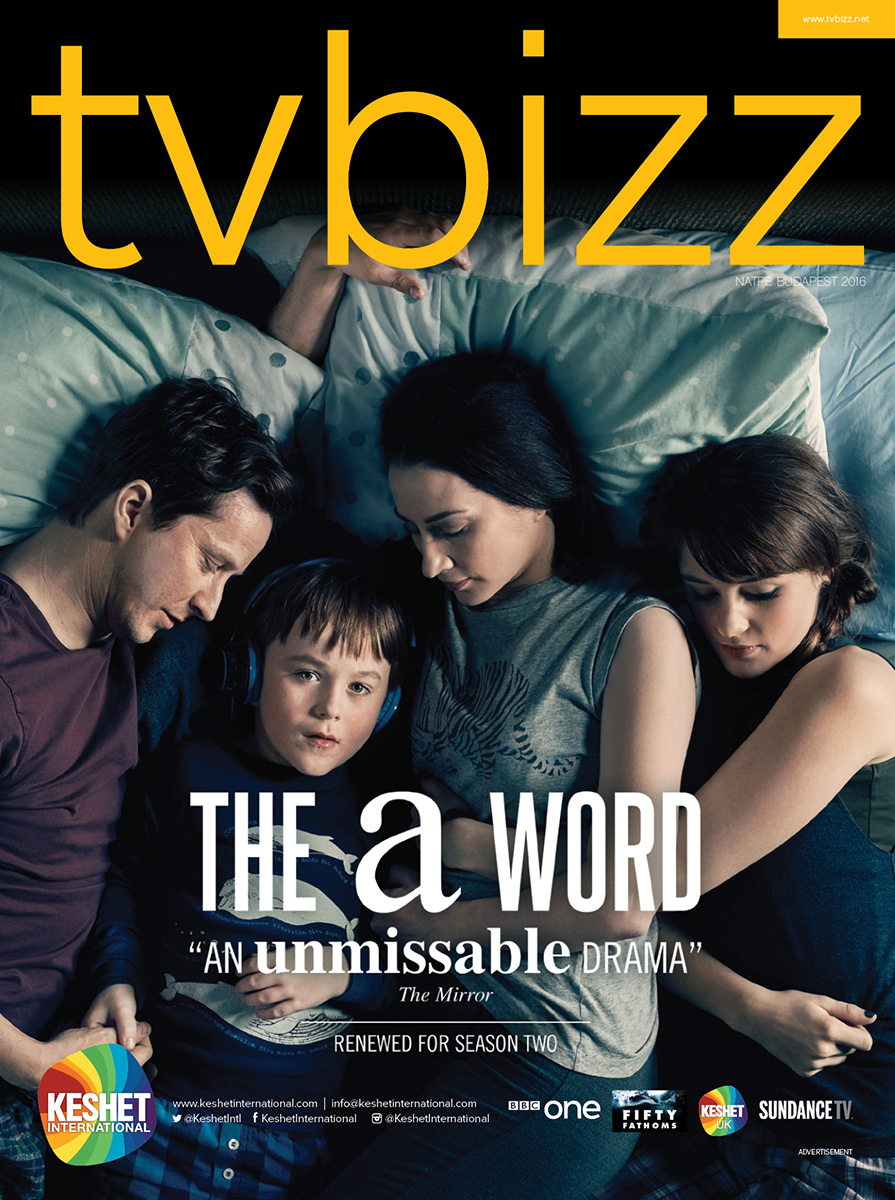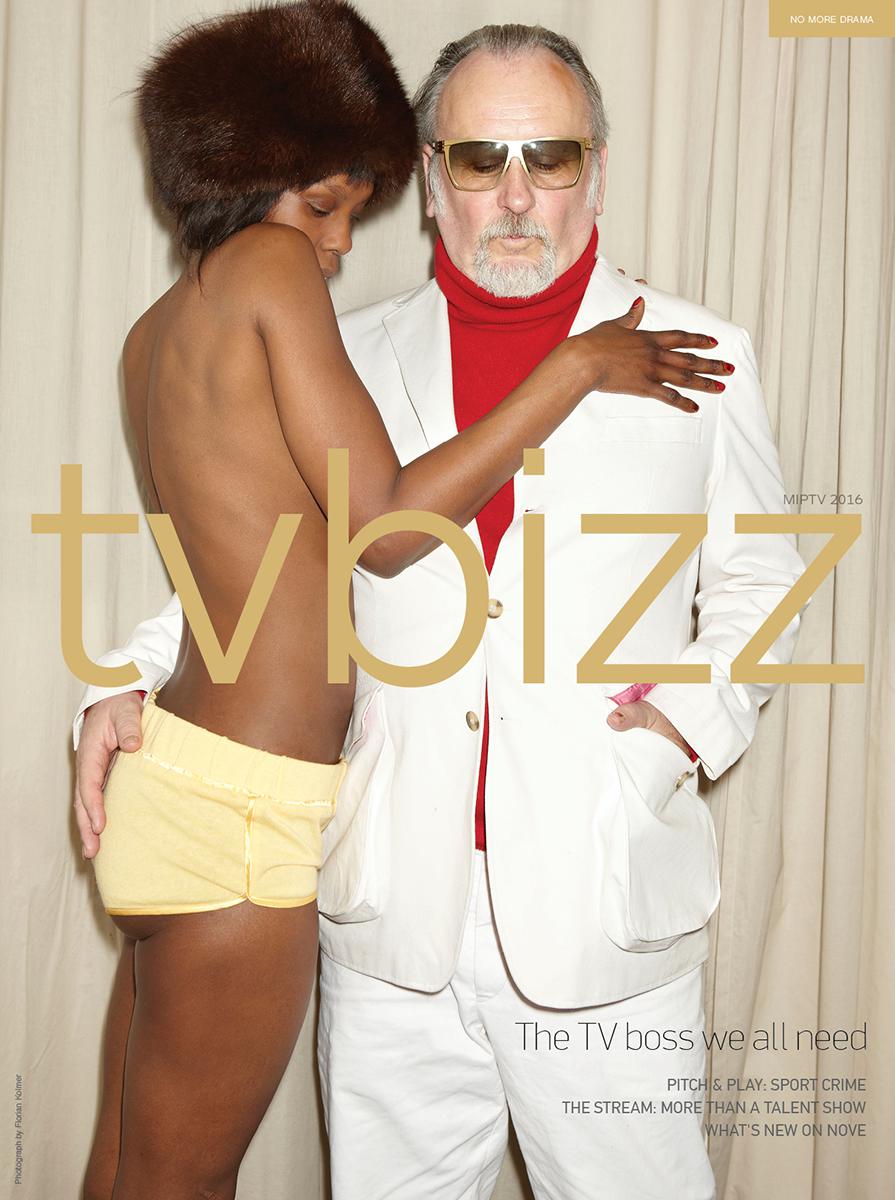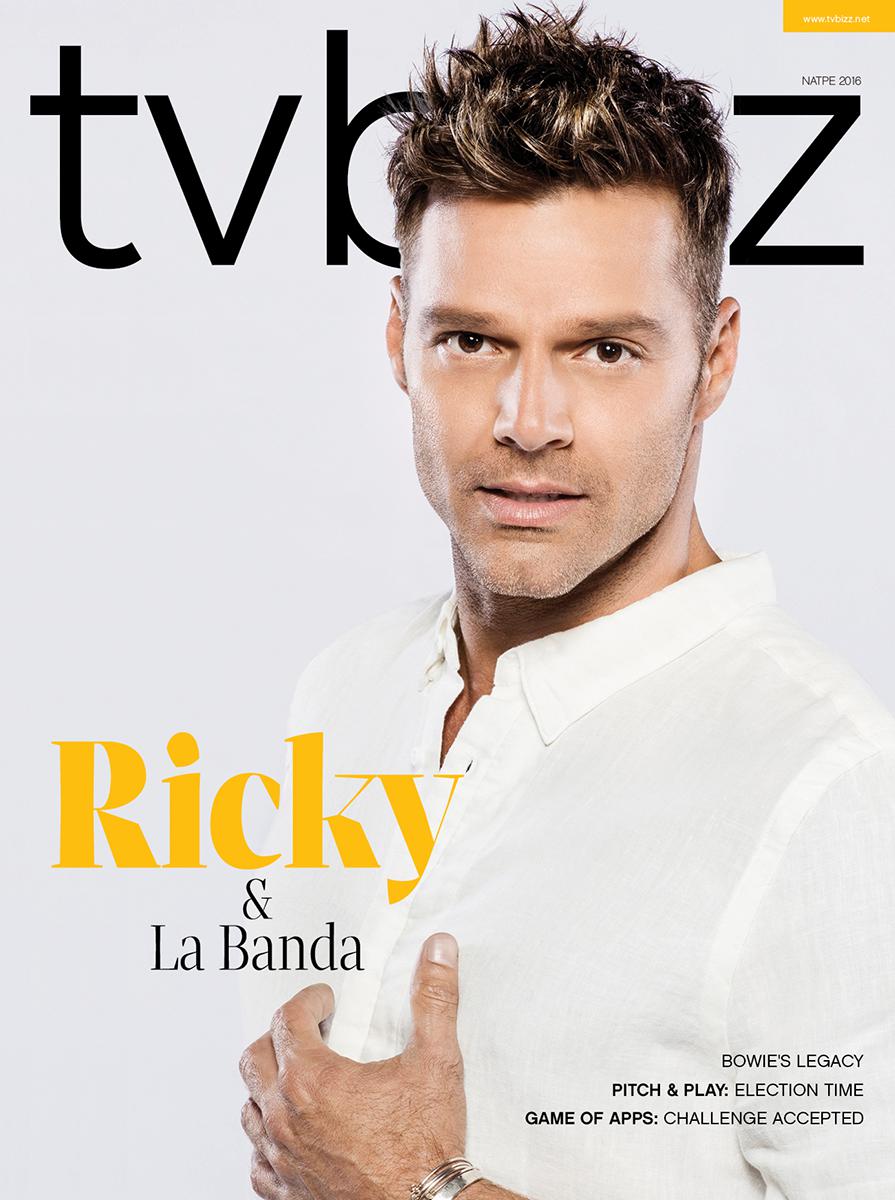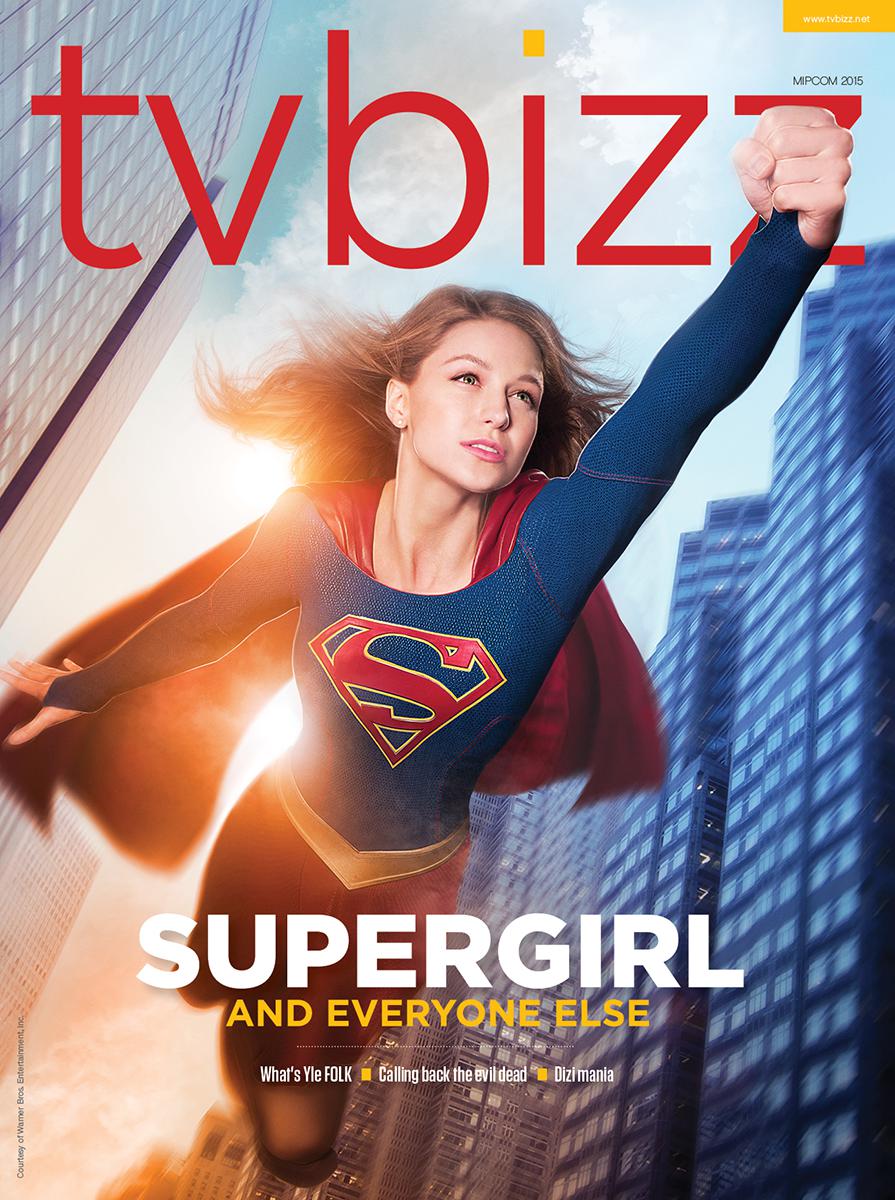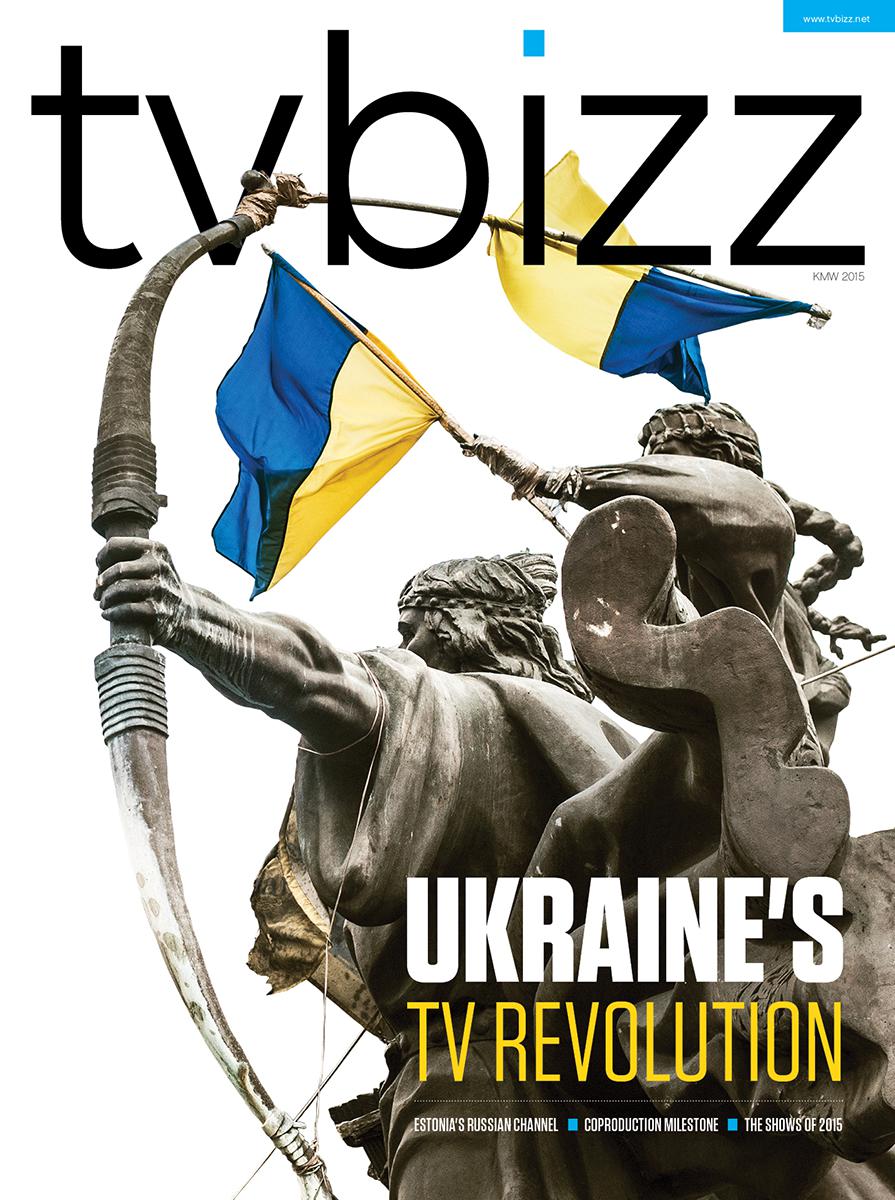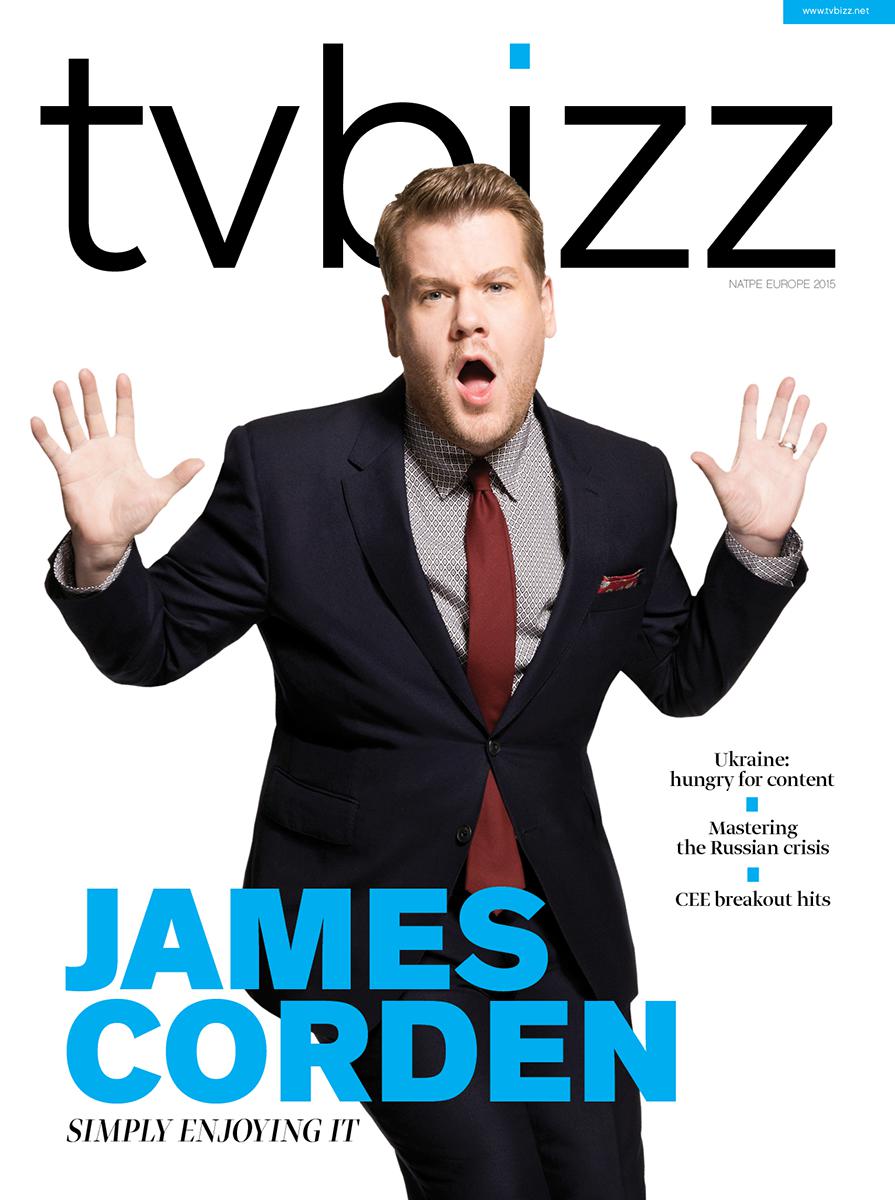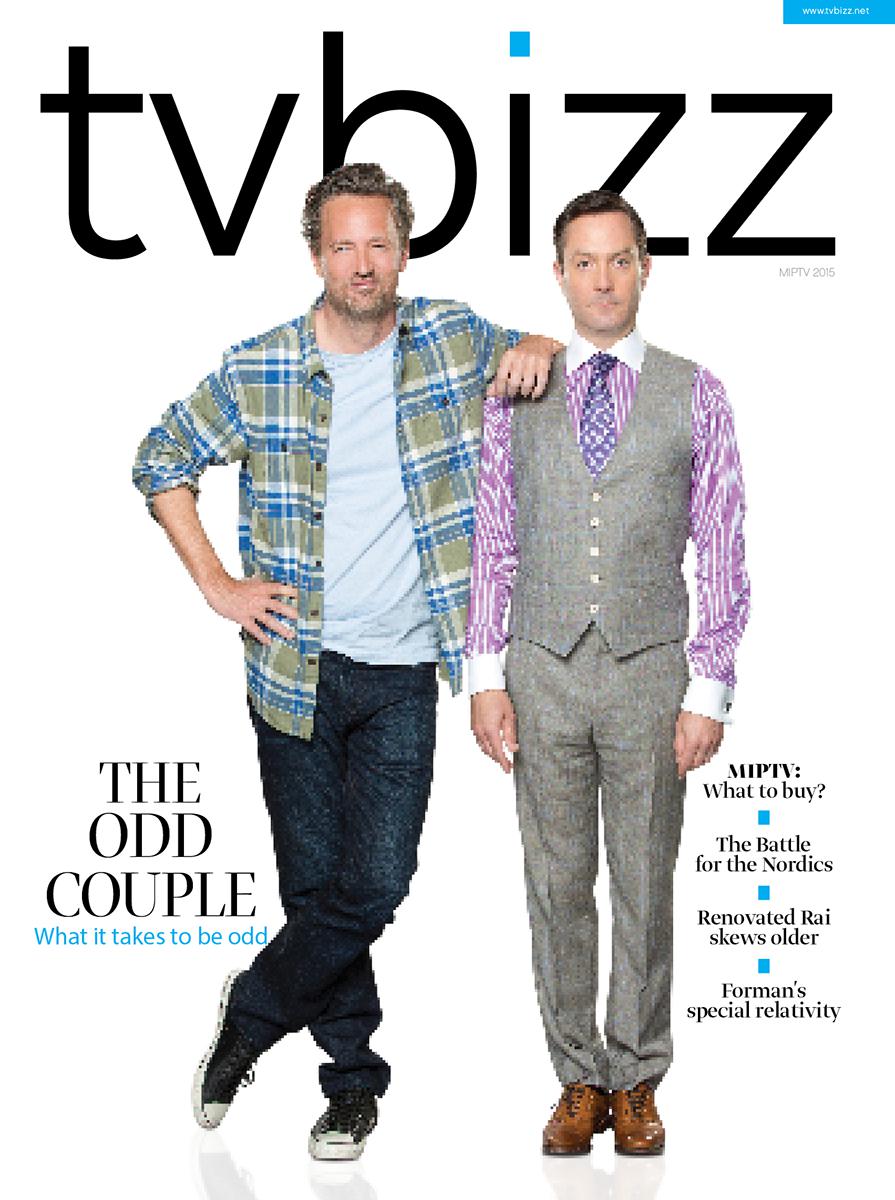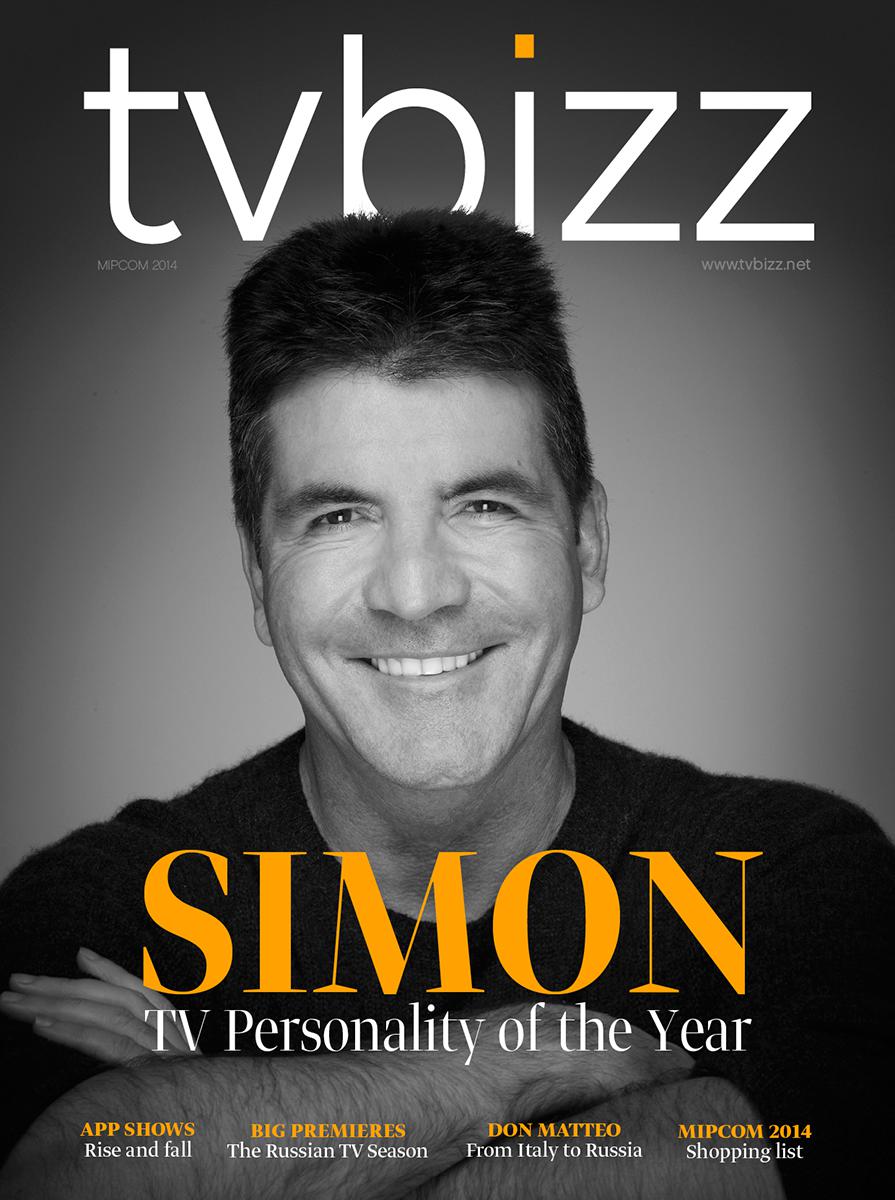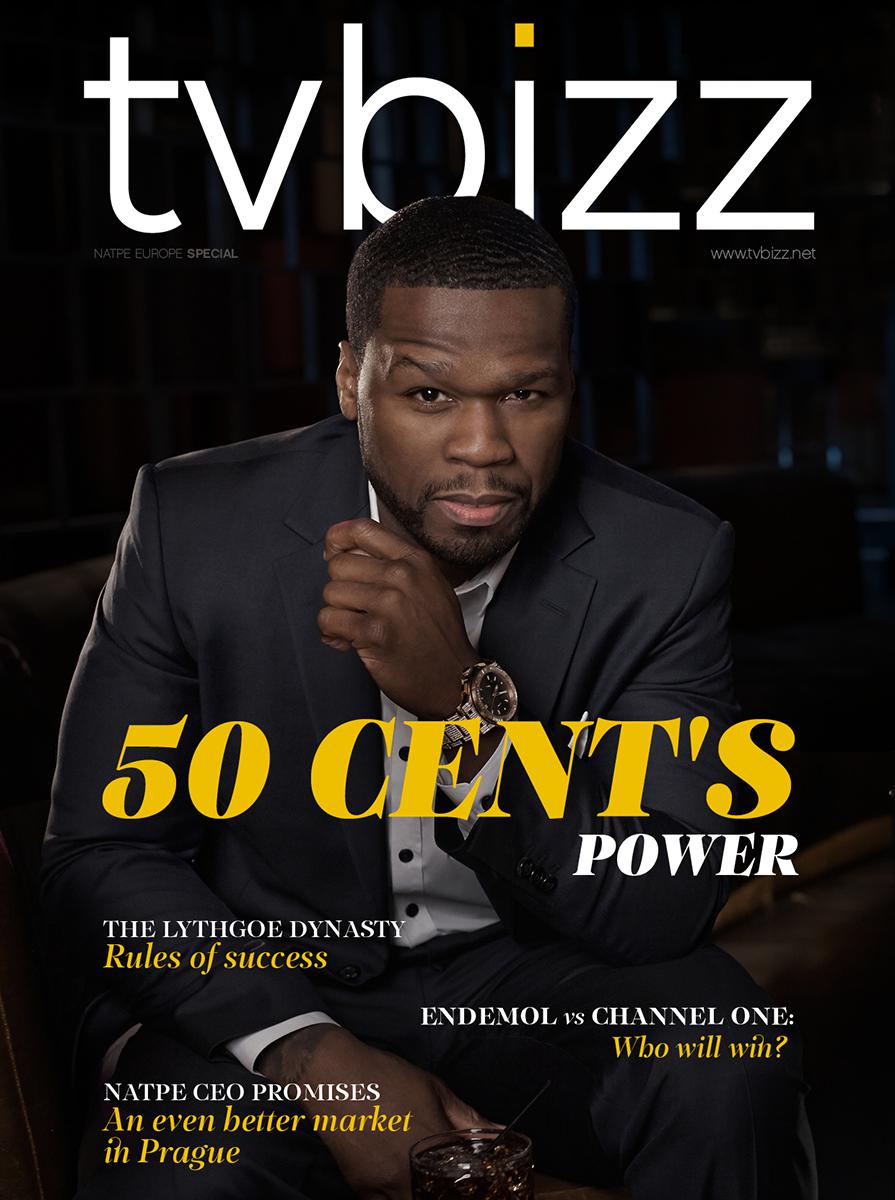Inside the NBCU format business
Formats have always played the second fiddle in the international business of the major US studios as films and series distribution and merchandising deliver the lion’s share of the IP monetization. With time, however, studios like NBCUniversal’s have expanded beyond their home markets and entered new territories, which require original ideas and productions. As the network of companies within the studios keeps expanding around the world, so does the importance of owning a strong catalog of formats which can be easily adapted for various markets and tastes. Complementing each other, the International Studios and International Formats divisions of NBCUniversal continue to grow and successfully compete with the likes of Endemol Shine, Fremantle and Banijay.
Stanislav Kimchev got on the phone with Ana Langenberg, SVP Format Sales and Production at NBCUniversal International Formats to talk about the opportunities and challenges of running NBCU’s international format business. The seasoned exec joined the company last year and has already enjoyed some major success stories launching format adaptations on various platforms in some of the toughest international markets.
Stanislav Kimchev got on the phone with Ana Langenberg, SVP Format Sales and Production at NBCUniversal International Formats to talk about the opportunities and challenges of running NBCU’s international format business. The seasoned exec joined the company last year and has already enjoyed some major success stories launching format adaptations on various platforms in some of the toughest international markets.
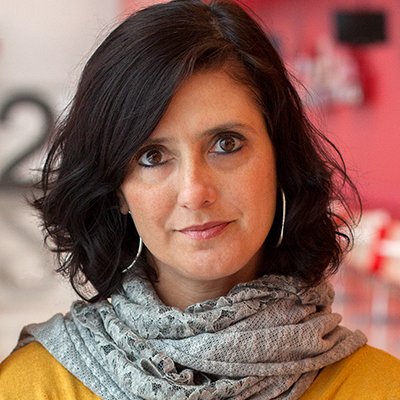
Ana Langenberg, SVP Format Sales and Production, NBCUniversal International
Formats
Ana, a year ago you became SVP, Format Sales and Production at NBCUniversal International Formats. What have been the biggest challenges for you during the past year?
I'm not sure I had such big challenges - it’s not always easy to settle into a new job with a new team and a new catalog, but I joined NBCUniversal International Formats at such a great and exciting time when we had just launched World of Dance. When I came on board last September, the show had aired across the summer and had performed really well, so we went to MIPCOM with that success to talk about. As a result, lots of countries were interested.
On top of that, we had Making It in the pipeline. We also had shows like Top Chef still selling well and Saturday Night Live riding a great kind of revival because of the success of the US show following Alec Baldwin’s Trump impersonation. I was starting at a great company, with great content and a great brand to be representing, so I was in a good place.
What have been NBCUniversal's best-traveling and most successful formats in both scripted and non-scripted in the past year?
We have sold World of Dance in three territories: the Philippines, Thailand and Poland, so we are very proud about those. SNL continues to be a great success for us, so does Top Chef. Hollywood Game Night has also been sold in a number of new territories including Sweden where it launched as the third most watched show across the country, so that's exciting too.
On the scripted side, it has been a great year for Suits. Suits Korea launched as the number one show in the territory. It rated as number one every night it aired and has been the most successful format adaptation in Korea to date, so we’re extremely proud about that. On the back of that we recently announced Suits Japan, which is currently in production. We are working on at least two other adaptations, which we’ll be able to announce soon.
SNL China has also been a great achievement this year - we had almost two billion views for the show on Youku. It was a new platform for SNL – we had done it on ShowMax in Poland, but we had never done it pre-recorded on a platform and we wondered how it was going to work with all the restrictions that any kind of platform faces in China, but the show did very well and will hopefully come back next year.
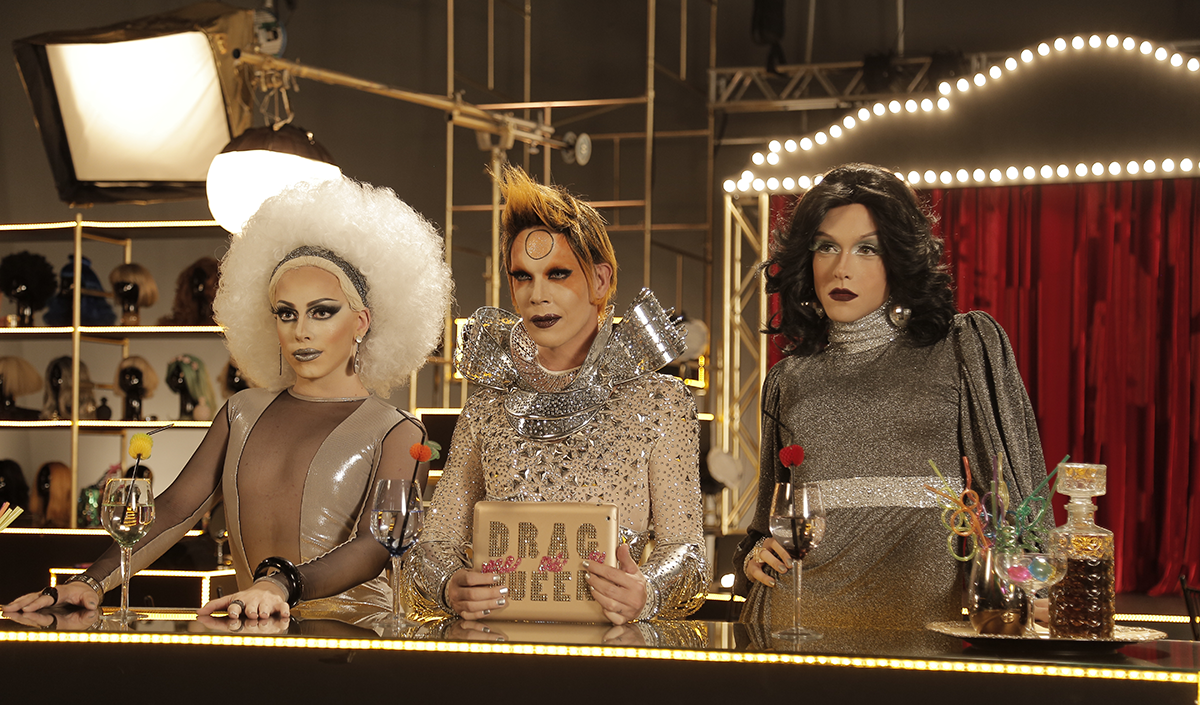
What are the newest formats that you will be presenting at MIPCOM?
We are very excited about our slate for MIPCOM. We have a real mixed bag in the sense that we have The Titan Games, our big entertainment show executive produced by Dwayne “The Rock” Johnson and Universal Television Alternative Studios. It is going to be a huge show with 10 episodes and Dwayne is really going to bring it to that incredible, stellar level in the US. We will take it to the market, introducing it to all broadcasters. We’re really keen to talk about how we could produce and scale it to European broadcasters, then to other broadcasters worldwide - so that’s our big topline.
We are also going to bring a new show, again from Universal Television Alternative Studio, called Songland. It is an exciting music competition format, executive produced by Dave Stewart from Eurhythmics, Audrey Morrison, who is the showrunner for The Voice in the US, and Ryan Tedder, who is a songwriter and producer, and has written songs for some of the biggest talent in the music business, such as Adele. These three great producers are going to help us put together the show, which is for songwriters – so it is going to be different to other music and talent shows in the market, in the sense that it is for brand new, undiscovered songwriters. In every episode a number of songwriters will pitch their music to the producers and a leading celebrity recording artist, and at the end of every episode the artist will pick a song that they will then record and release.
We also picked up a few third-party formats that we will be launching. One is called The Diva in Me, which is an exciting transformation reality show, where women get the ultimate makeover by three fabulous drag queens – releasing their inner diva and inner beauty, to boost their self-confidence and self-esteem. This is a show that was commissioned and aired by E! Latin America in Brazil. Produced by Movioca, it is such a feel-good show that harnesses the art of drag to empower real women.
We are also bringing Crush from Phileas Productions and Mediapro in Spain. We haven’t announced a new studio gameshow for a little while, so it's nice to bring a new one to the market. We also have a format called Hotel Battle from Monday Productions, which is a factual entertainment show that sees a series of couples compete to fulfill their dreams of creating a boutique hotel.
We feel all of these shows complement our existing catalogue really well, and we are particularly excited to make a big splash with The Titan Games and Songland.
Tell us more about your network of creative partners globally. How close do you work with the companies from NBCU International Studios?
We work very closely with our studio partners from the US – Universal Alternative Studio being one of them. We also work together with Universal Cable Productions who produce scripted content out of the US, and our networks such as Bravo, Oxygen and E! They all create a huge volume of content every year, so we work very closely to source new material that they produce, which we feel will travel internationally.
We also work closely with our NBCUniversal International Studios partners. In the UK, we have Monkey, who are the producers of Made in Chelsea, The Real Housewives of Cheshire, The Bi Life and Don’t Hate the Playaz.
There’s also Matchbox in Australia, who are mostly known for scripted shows like The Slap and Safe Harbour. Safe Harbour being one of our new scripted titles coming to this MIP, together with Everyone is a Critic, which is a factual show they’ve produced for ABC Australia earlier this year.
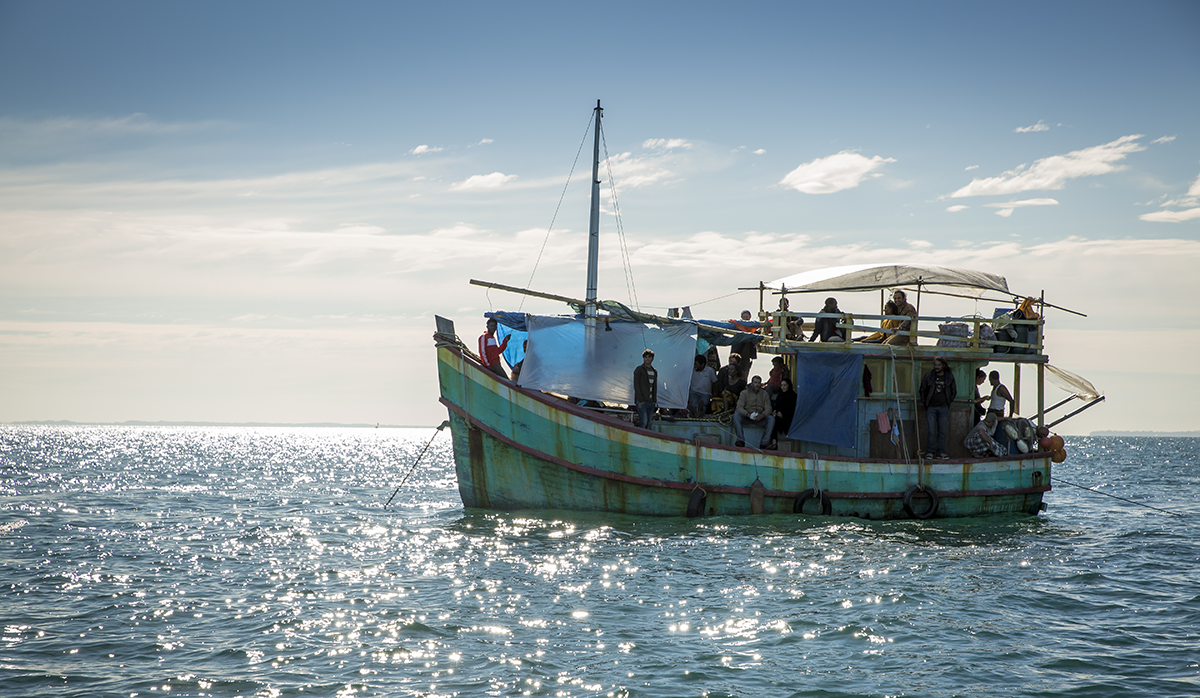
As one of the major US studios, how easy is it for NBCU to compete on the format arena with other giants in the format industry like Endemol Shine, Fremantle, Banijay, etc?
It is a very competitive market as you know, but we have such a great production network with our Studios and producers across the US, Australia, Canada and the UK. This also makes us more flexible to work with broadcasters and other producers, so in a way it puts us in a certain advantage in comparison with our competitors. Having said that, we also partner with some of them in certain markets where there’s interest in our formats, so they can option and produce our formats as well – we have a few options with a couple of these companies in fact. Where we feel that a production company is in a position to pitch one of our shows, we will very happily option them the rights and work together with them to strengthen the pitch and create better opportunities for our shows.
What are some of the territories where you are looking to grow?
Continued growth in our current markets is important, but we are also looking at the broader picture. At the moment, we have production companies in English-speaking territories, but as the world of television continues to evolve, i.e. with the arrival of more SVODs and the shift from American content to locally produced content and adaptations, it is important for us to be looking into opportunities to become the producers of local content in certain key markets. This is definitely a huge priority for us and what we have always kept our eye on.
In the past, NBCU developed several original formats with MTG in the CEE region. Do you continue to look for such partnerships with players around the world? Are there any projects currently in development along these lines?
Absolutely, working with global partners is key to what we do. We struck a deal with MBC in Korea not too long ago and as a result, we produced a new format called The Game with No Name. The pilot aired successfully earlier this year and hopefully will return as a full series. We also have key partnerships in the likes of Thailand with CJ and also Zense. We co-developed a format with Zense called Singer Auction, which aired on Channel 3. So it is definitely something that we are interested in.
We are constantly talking to producers and want to find new opportunities to co-develop ideas. There are so many possibilities to partner with broadcasters and that is always attractive because they can see the window to where the product of your partnership will air. We’re also in talks with a number of Israeli companies and are looking to build on partnerships in Korea.
What is the balance between original and third-part formats in your catalog?
The majority of our catalog is made up of content that we’ve created – mostly out of the NBCUniversal US Studios or our International Studios production companies Monkey or Matchbox. We try to find third-party formats that complement our catalog, in the genres where we might need more variety. Although we don’t have too many of those. When we do, it's because we really believe in them and are excited at the prospect of selling them.

You are one of the most experienced execs in this industry. You witnessed how the format business started to evolve back in the 90’s. What would you say were the biggest changes in the past 20 years?
It is a really long time to cover and it makes me feel very old when you say I have been there that long (laughing). In a way, the format business has become extremely competitive. It’s huge and everybody wants to have a slice of it. A lot of companies have come into the market and have grown just from selling formats. It’s also great to see so many countries entering the format world; first the Israelis and then South Korea. There has also been a lot of consolidation.
I also think because there are so many formats now and it's so competitive, viewership has also become competitive, because viewers have so much to watch. What makes a hit these days is different from what it took in the old days, in terms of how many eyeballs you get to watch a show in each territory, and also how many territories you sell to and how many recurring series you have. You still have some of the old ones like Big Brother, Wheel of Fortune and Survivor in a lot of territories. You also still have that recurring factor, but it’s more difficult to get those now.
Everyone is still after the Holy Grail or the Next Big Thing, so that hasn’t changed. That has always been what the market is looking for – although I don’t think anybody has really found it yet. But I also think where we are at the moment there is a lot of opportunity for local productions. There is also a lot of opportunity for new creative ideas and new formats.
Times have really changed. We are not only selling to linear TV, but now we are selling to a plethora of SVODs – particularly on the entertainment side, which is new. This has brought about a number of challenges surrounding rights, i.e. how to keep those rights, and how to keep monetizing your own rights. Particularly in a world where all platforms want to keep those rights and broadcasters are demanding more rights for their money. Whilst it is definitely challenging in that respect, it's also a great opportunity to pitch to new platforms.
Can we expect to see major international formats transfer from broadcast TV to SVOD services, for example?
Yes, absolutely. We are pitching to SVOD platforms in multiple territories and have sold Saturday Night Live to SVOD platforms in both China and in Poland, which did very well. I also think Queer Eye has demonstrated that there is interest in shows that are no longer on linear TV anymore, and it has found a new life for itself – quite a successful one on Netflix.
I think SVODs are definitely looking for specific programming and the content that works on those platforms are perhaps a little bit different. But there is definitely a different world of clients out there to work with now, which is incredibly exciting for us.
I'm not sure I had such big challenges - it’s not always easy to settle into a new job with a new team and a new catalog, but I joined NBCUniversal International Formats at such a great and exciting time when we had just launched World of Dance. When I came on board last September, the show had aired across the summer and had performed really well, so we went to MIPCOM with that success to talk about. As a result, lots of countries were interested.
On top of that, we had Making It in the pipeline. We also had shows like Top Chef still selling well and Saturday Night Live riding a great kind of revival because of the success of the US show following Alec Baldwin’s Trump impersonation. I was starting at a great company, with great content and a great brand to be representing, so I was in a good place.
What have been NBCUniversal's best-traveling and most successful formats in both scripted and non-scripted in the past year?
We have sold World of Dance in three territories: the Philippines, Thailand and Poland, so we are very proud about those. SNL continues to be a great success for us, so does Top Chef. Hollywood Game Night has also been sold in a number of new territories including Sweden where it launched as the third most watched show across the country, so that's exciting too.
On the scripted side, it has been a great year for Suits. Suits Korea launched as the number one show in the territory. It rated as number one every night it aired and has been the most successful format adaptation in Korea to date, so we’re extremely proud about that. On the back of that we recently announced Suits Japan, which is currently in production. We are working on at least two other adaptations, which we’ll be able to announce soon.
SNL China has also been a great achievement this year - we had almost two billion views for the show on Youku. It was a new platform for SNL – we had done it on ShowMax in Poland, but we had never done it pre-recorded on a platform and we wondered how it was going to work with all the restrictions that any kind of platform faces in China, but the show did very well and will hopefully come back next year.

The Diva in Me
What are the newest formats that you will be presenting at MIPCOM?
We are very excited about our slate for MIPCOM. We have a real mixed bag in the sense that we have The Titan Games, our big entertainment show executive produced by Dwayne “The Rock” Johnson and Universal Television Alternative Studios. It is going to be a huge show with 10 episodes and Dwayne is really going to bring it to that incredible, stellar level in the US. We will take it to the market, introducing it to all broadcasters. We’re really keen to talk about how we could produce and scale it to European broadcasters, then to other broadcasters worldwide - so that’s our big topline.
We are also going to bring a new show, again from Universal Television Alternative Studio, called Songland. It is an exciting music competition format, executive produced by Dave Stewart from Eurhythmics, Audrey Morrison, who is the showrunner for The Voice in the US, and Ryan Tedder, who is a songwriter and producer, and has written songs for some of the biggest talent in the music business, such as Adele. These three great producers are going to help us put together the show, which is for songwriters – so it is going to be different to other music and talent shows in the market, in the sense that it is for brand new, undiscovered songwriters. In every episode a number of songwriters will pitch their music to the producers and a leading celebrity recording artist, and at the end of every episode the artist will pick a song that they will then record and release.
We also picked up a few third-party formats that we will be launching. One is called The Diva in Me, which is an exciting transformation reality show, where women get the ultimate makeover by three fabulous drag queens – releasing their inner diva and inner beauty, to boost their self-confidence and self-esteem. This is a show that was commissioned and aired by E! Latin America in Brazil. Produced by Movioca, it is such a feel-good show that harnesses the art of drag to empower real women.
We are also bringing Crush from Phileas Productions and Mediapro in Spain. We haven’t announced a new studio gameshow for a little while, so it's nice to bring a new one to the market. We also have a format called Hotel Battle from Monday Productions, which is a factual entertainment show that sees a series of couples compete to fulfill their dreams of creating a boutique hotel.
We feel all of these shows complement our existing catalogue really well, and we are particularly excited to make a big splash with The Titan Games and Songland.
Tell us more about your network of creative partners globally. How close do you work with the companies from NBCU International Studios?
We work very closely with our studio partners from the US – Universal Alternative Studio being one of them. We also work together with Universal Cable Productions who produce scripted content out of the US, and our networks such as Bravo, Oxygen and E! They all create a huge volume of content every year, so we work very closely to source new material that they produce, which we feel will travel internationally.
We also work closely with our NBCUniversal International Studios partners. In the UK, we have Monkey, who are the producers of Made in Chelsea, The Real Housewives of Cheshire, The Bi Life and Don’t Hate the Playaz.
There’s also Matchbox in Australia, who are mostly known for scripted shows like The Slap and Safe Harbour. Safe Harbour being one of our new scripted titles coming to this MIP, together with Everyone is a Critic, which is a factual show they’ve produced for ABC Australia earlier this year.

Safe Harbour
As one of the major US studios, how easy is it for NBCU to compete on the format arena with other giants in the format industry like Endemol Shine, Fremantle, Banijay, etc?
It is a very competitive market as you know, but we have such a great production network with our Studios and producers across the US, Australia, Canada and the UK. This also makes us more flexible to work with broadcasters and other producers, so in a way it puts us in a certain advantage in comparison with our competitors. Having said that, we also partner with some of them in certain markets where there’s interest in our formats, so they can option and produce our formats as well – we have a few options with a couple of these companies in fact. Where we feel that a production company is in a position to pitch one of our shows, we will very happily option them the rights and work together with them to strengthen the pitch and create better opportunities for our shows.
What are some of the territories where you are looking to grow?
Continued growth in our current markets is important, but we are also looking at the broader picture. At the moment, we have production companies in English-speaking territories, but as the world of television continues to evolve, i.e. with the arrival of more SVODs and the shift from American content to locally produced content and adaptations, it is important for us to be looking into opportunities to become the producers of local content in certain key markets. This is definitely a huge priority for us and what we have always kept our eye on.
In the past, NBCU developed several original formats with MTG in the CEE region. Do you continue to look for such partnerships with players around the world? Are there any projects currently in development along these lines?
Absolutely, working with global partners is key to what we do. We struck a deal with MBC in Korea not too long ago and as a result, we produced a new format called The Game with No Name. The pilot aired successfully earlier this year and hopefully will return as a full series. We also have key partnerships in the likes of Thailand with CJ and also Zense. We co-developed a format with Zense called Singer Auction, which aired on Channel 3. So it is definitely something that we are interested in.
We are constantly talking to producers and want to find new opportunities to co-develop ideas. There are so many possibilities to partner with broadcasters and that is always attractive because they can see the window to where the product of your partnership will air. We’re also in talks with a number of Israeli companies and are looking to build on partnerships in Korea.
What is the balance between original and third-part formats in your catalog?
The majority of our catalog is made up of content that we’ve created – mostly out of the NBCUniversal US Studios or our International Studios production companies Monkey or Matchbox. We try to find third-party formats that complement our catalog, in the genres where we might need more variety. Although we don’t have too many of those. When we do, it's because we really believe in them and are excited at the prospect of selling them.

Crush
You are one of the most experienced execs in this industry. You witnessed how the format business started to evolve back in the 90’s. What would you say were the biggest changes in the past 20 years?
It is a really long time to cover and it makes me feel very old when you say I have been there that long (laughing). In a way, the format business has become extremely competitive. It’s huge and everybody wants to have a slice of it. A lot of companies have come into the market and have grown just from selling formats. It’s also great to see so many countries entering the format world; first the Israelis and then South Korea. There has also been a lot of consolidation.
I also think because there are so many formats now and it's so competitive, viewership has also become competitive, because viewers have so much to watch. What makes a hit these days is different from what it took in the old days, in terms of how many eyeballs you get to watch a show in each territory, and also how many territories you sell to and how many recurring series you have. You still have some of the old ones like Big Brother, Wheel of Fortune and Survivor in a lot of territories. You also still have that recurring factor, but it’s more difficult to get those now.
Everyone is still after the Holy Grail or the Next Big Thing, so that hasn’t changed. That has always been what the market is looking for – although I don’t think anybody has really found it yet. But I also think where we are at the moment there is a lot of opportunity for local productions. There is also a lot of opportunity for new creative ideas and new formats.
Times have really changed. We are not only selling to linear TV, but now we are selling to a plethora of SVODs – particularly on the entertainment side, which is new. This has brought about a number of challenges surrounding rights, i.e. how to keep those rights, and how to keep monetizing your own rights. Particularly in a world where all platforms want to keep those rights and broadcasters are demanding more rights for their money. Whilst it is definitely challenging in that respect, it's also a great opportunity to pitch to new platforms.
Can we expect to see major international formats transfer from broadcast TV to SVOD services, for example?
Yes, absolutely. We are pitching to SVOD platforms in multiple territories and have sold Saturday Night Live to SVOD platforms in both China and in Poland, which did very well. I also think Queer Eye has demonstrated that there is interest in shows that are no longer on linear TV anymore, and it has found a new life for itself – quite a successful one on Netflix.
I think SVODs are definitely looking for specific programming and the content that works on those platforms are perhaps a little bit different. But there is definitely a different world of clients out there to work with now, which is incredibly exciting for us.




